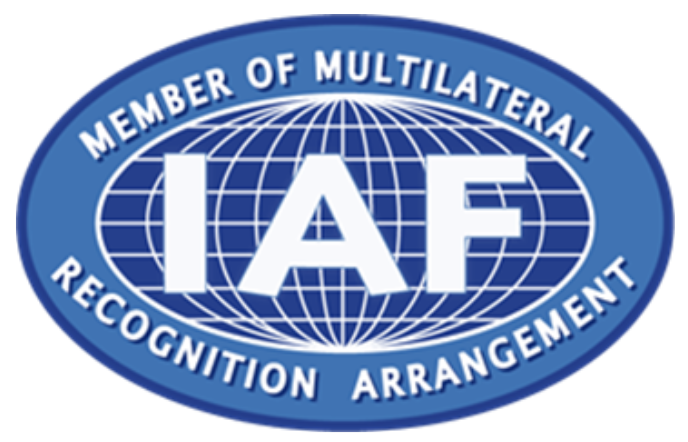- VAPT Services
- Web Application Security Testing
- Mobile Application Security Testing
- IoT Security Testing
- Network Penetration Testing
- Cloud Penetration Testing
- Source Code Review
- Threat Modeling
- Vulnerability Assessment
- Thick Client Application
- Wireless Security

Web Application Security Testing

Mobile Application Security Testing

IoT Security Testing

Network Penetration Testing

Cloud Penetration Testing

Source Code Review

Threat Modeling

Vulnerability Assessment

Thick Client Application

Wireless Security
- Compliance
- ISO/IEC 27001 Compliance
- HIPAA Compliance
- PCI DSS Compliance
- RBI Compliance Audit
- IRDAI Compliance Audit
- SEBI Compliance Audit
- SAR Compliance Audit
- BCP / DRP

ISO/IEC 27001 Compliance

HIPPA Compliance

PCI DSS Compliance

RBI Compliance Audit

IRDAI Compliance Audit

SEBI Compliance Audit

SAR Compliance Audit

BCP / DRP
- Solutions
- DevSecOps
- Digital Forensics
- Incident Response Planning
- Malware Analysis & Reverse Engineering
- Phishing Campaign
- Red Teaming

DevSecOps

Digital Forensics

Malware Analysis & Reverse Engineering

Incident Response Planning

Phishing Campaign

Red Teaming
- Company

Company Overview

Careers

Our Team

Accreditations

Cyber Security Blog

Contact us
Now!
Talk To Our Cyber Expert For Free.
RBI Compliance Audit
Learn how Qunit services can help you to improve your Reserve Bank of India compliance.





OVERVIEW: RBI GUIDELINES SECURITY AUDIT FOR NBFC SECTOR
The banking sector, including Non-Banking Financial Companies (NBFCs), faces significant cybersecurity risks and threats. Recognizing the importance of protecting customer data and ensuring the integrity of financial systems, the Reserve Bank of India (RBI) has issued guidelines for NBFCs to conduct IT audits and obtain attestation under the RBI IS Audit.
The RBI’s master directions highlight the need for NBFCs to prioritize cybersecurity measures and assess the effectiveness of their information technology infrastructure. By conducting security audits in line with RBI guidelines, NBFCs can enhance their resilience against cyber threats and ensure the security of customer data.
Key aspects of RBI guidelines for NBFC security audits:
IT Audit Requirement
RBI IS Audit
Cybersecurity Risk Assessment
Compliance with Security Controls
Incident Response and Reporting
Compliance Monitoring and Reporting
ISO 27001
What is ISO 27001?
ISO 27001 is a globally recognized security standard that provides a framework for establishing an effective Information Security Management System (ISMS). It is part of the ISO/IEC 27000 series of standards published by the International Organization for Standardization (ISO) and International Electrotechnical Commission (IEC).
The ISO 27001 standard focuses on technical risk management controls and helps organizations establish, implement, operate, monitor, review, maintain, and improve their ISMS. It takes a risk-based and technology-neutral approach, allowing organizations to tailor their security controls according to their specific risks and needs.
Rather than prescribing a fixed list of controls, ISO 27001 provides a checklist of measures to consider and offers best practice recommendations outlined in ISO 27002. This flexible approach enables organizations to implement controls that align with their unique security requirements.
Even if your organization is not pursuing full ISO 27001 certification, familiarizing yourself with the standard and its controls is essential for following security best practices. Understanding the guidelines can help ensure that your organization adopts effective security measures and safeguards sensitive information.
CONTROLS
ISO 27001 Annex A controls
- Risk Mitigation: Systematically identifying and assessing risks enables organizations to implement appropriate controls to mitigate those risks effectively.
- Compliance Assurance: Adhering to ISO/IEC 27001 requirements helps organizations demonstrate compliance with information security standards and regulatory obligations.
- Continual Improvement: The ongoing management process encourages organizations to continually assess and adapt their security controls to address new and emerging risks.
- Stakeholder Confidence: By effectively managing information security risks, organizations can inspire confidence in their customers, partners, and stakeholders, building trust and credibility.
ISO 27001 REQUIREMENTS
ISO/IEC 27001 requirements
ISO 27001 Annex A provides a comprehensive set of 114 best practice controls that organizations can choose from to build an effective Information Security Management System (ISMS). These controls are divided into 14 clauses, covering various aspects of information security.
It’s important to note that since the 2013 update of ISO 27001, these controls are not mandatory. Instead, they serve as guidance for organizations during their risk assessments, allowing them to select and justify the controls that are most relevant and meaningful for their specific context.
The 14 control clauses of ISO 27001 Annex A are as follows:
A.5 - Information security policies
A.6 - Organisation of information security
A.7 - Human resource security
A.8 - Asset management
A.9 - Access control
A.10 - Cryptography
A.11 - Physical and environmental security
A.12 - Operations security
A.13 - Communications security
A.14 - System development and maintenance
A.15 - Supplier relationships
A.16 - Information security incident management
A.17 - Business continuity management
A.18 - Compliance laws and policies
Get a quick quote
Benefits

Enhanced Risk Management

Continuous Improvement

Stakeholder Trust

Improved Security Posture

Regulatory Compliance
Methodology
OUR APPROACH TO RBI GUIDELINES SECURITY AUDIT FOR NBFC SECTOR
At Qunit, we take a comprehensive and systematic approach to conducting RBI guidelines security audits in the NBFC sector. Our approach encompasses the following key steps:
- 01. Assessment and Gap Analysis
- 02. Risk Assessment
- 03. Compliance Mapping
- 04. Remediation Planning
- 05. Implementation and Testing
- 06. Audit and Attestation
- 07. Ongoing Monitoring and Support
We begin by assessing the current security posture of the organization against the RBI guidelines. This includes evaluating existing security controls, policies, procedures, and infrastructure to identify any gaps or areas of non-compliance.
We conduct a thorough risk assessment to identify and prioritize potential security risks and vulnerabilities specific to the NBFC sector. This helps organizations understand their risk landscape and allocate appropriate resources for risk mitigation.
We map the organization’s existing security measures and controls to the specific requirements outlined in the RBI guidelines. This helps identify areas of compliance and areas that require improvement or additional controls to meet the regulatory standards.
Based on the assessment and compliance mapping, we develop a tailored remediation plan that outlines specific actions and timelines for addressing identified gaps and achieving compliance. We work closely with organizations to ensure the plan aligns with their business objectives and resource capabilities.
We assist organizations in implementing the necessary security controls, policies, and procedures as outlined in the remediation plan. We conduct thorough testing to validate the effectiveness of the implemented measures and ensure they align with the RBI guidelines.
We conduct the security audit in line with the RBI guidelines, evaluating the organization’s compliance with the prescribed cybersecurity standards. We assist organizations in obtaining attestation from RBI under the RBI IS Audit framework to validate their adherence to the guidelines.
We provide ongoing monitoring and support to help organizations maintain their compliance with the RBI guidelines. This includes periodic assessments, security updates, and guidance on evolving regulatory requirements.
WHY US?
WHY DO ORGANIZATIONS NEED RBI GUIDELINES SECURITY AUDIT FOR NBFC SECTOR?
- Cybersecurity Risks
- Regulatory Compliance
- Risk Management
- Incident Response Preparedness
FAQ: RBI Guidelines Security Audit for NBFC Sector
An RBI guidelines security audit is crucial for NBFCs to ensure compliance with regulatory requirements, protect sensitive customer data, mitigate cybersecurity risks, and maintain the integrity of financial systems. It helps organizations demonstrate their commitment to security and regulatory compliance.
All NBFCs (Non-Banking Financial Companies) are required to undergo an RBI guidelines security audit as per the directive issued by the Reserve Bank of India (RBI). This includes both large and small NBFCs operating in the financial sector.
The key objectives of an RBI guidelines security audit are to assess the effectiveness of an NBFC’s information security controls, identify vulnerabilities and weaknesses, ensure compliance with RBI guidelines, and recommend measures to strengthen security and mitigate risks.
The frequency of RBI guidelines security audits may vary based on factors such as the size of the NBFC, the nature of operations, and regulatory requirements. It is generally recommended to conduct security audits at least annually or as per the RBI’s guidelines.
RBI guidelines security audits are typically conducted by experienced and qualified cybersecurity professionals or specialized auditing firms with expertise in the financial sector and knowledge of RBI guidelines. It is essential to engage experts who are familiar with the specific security challenges faced by NBFCs.
The deliverables of an RBI guidelines security audit typically include a comprehensive assessment report highlighting the findings, identified vulnerabilities, recommendations for improvement, and a roadmap for remediation. The audit report serves as a valuable reference for addressing security gaps and achieving regulatory compliance.
